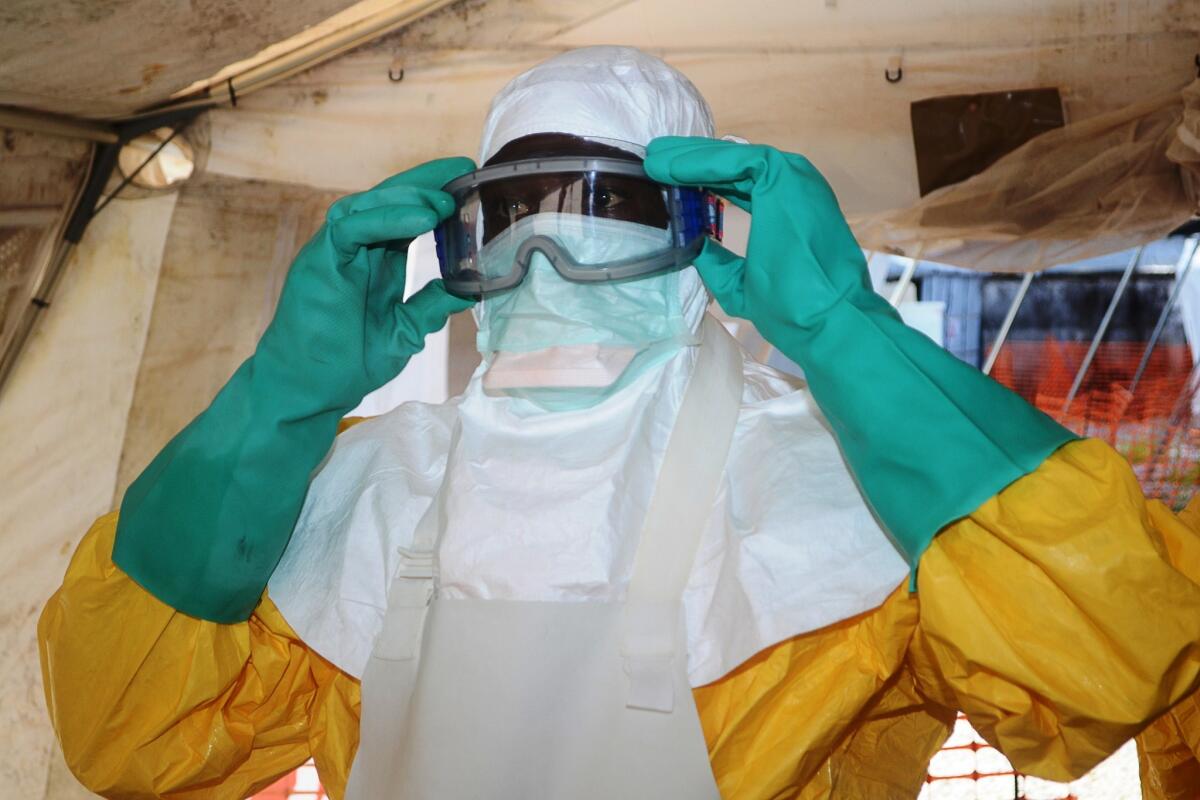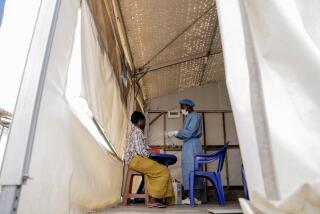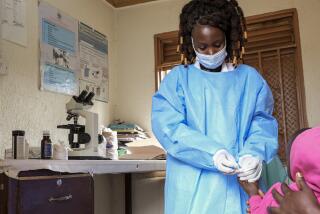Doctor battling Ebola in Sierra Leone contracts the deadly virus

Reporting from Johannesburg, South Africa â Dr. Sheik Umar Khan knew he was putting his life at risk by working closely with the victims of the Ebola virus outbreak in Sierra Leone. Still, he kept at it.
Khan is Sierra Leoneâs chief doctor in its battle to contain the deadly, incurable virus. Medical staff and hygiene workers, even clad from head to toe in protective clothing, are among those most at risk.
Now Khan, who was hailed as a national hero by the government and has treated more than 100 patients, has contracted the disease, according to the government.
He has found himself in the position of being both patient and doctor, under treatment in a Doctors Without Borders medical center.
Just days ago, three nurses working alongside Khan died of Ebola.
The outbreak is the worst, according to the World Health Organization, affecting three West African countries with more than 60 outbreak sites. Efforts to control the disease have been complicated by poor health systems, the flow of people across borders and the reluctance of terrified people showing symptoms to submit to treatment in isolation wards.
The outbreak began in Guinea in February and has since spread to Liberia and Sierra Leone.
Khan, who was meticulous about preventing infection, has been one of Sierra Leoneâs main voices in the fight against Ebola. He has described the problems authorities face because of public resistance to acceptance of the disease, which has terrified the region.
He also confided his own fears of death, in an interview with Reuters news service late last month.
âI am afraid for my life, I must say, because I cherish my life,â he said in an interview, showing no signs of ill health at the time.
âHealth workers are prone to the disease because we are the first port of call for somebody who is sickened by disease,â he said. âEven with the full protective clothing you put on, you are at risk.â
He told Reuters that he had installed a mirror in his office to check carefully for any holes in the protective gear before any contact with infected people.
In Sierra Leone, 145 of the 427 cases have resulted in death, according to the countryâs Ministry of Health and Sanitation.
The World Health Organizationâs figures differed significantly, giving the number of deaths in Sierra Leone as 219. Its latest update Thursday said the 1,096 cases in the region have led to 660 deaths.
In messages posted to the Health Ministryâs Facebook page Thursday, Sierra Leoneans prayed for Khanâs recovery and sought information about the discrepancies between the government and WHO mortality figures.
Traditional burial practices, in which family members must wash the bodies of the dead, hastened the diseaseâs spread. After death, the body is at its most contagious, Khan told Reuters.
âDonât forget, by the time people are dead with the Ebola, they are more infectious than all,â he said. âSo if they take care of their burial on their own, 10 more will be infected.â
A Liberian man was tested for Ebola in Lagos, the commercial capital of Nigeria, Reuters reported Thursday.
Turn to @robyndixon for news out of Africa on Twitter.
More to Read
Sign up for Essential California
The most important California stories and recommendations in your inbox every morning.
You may occasionally receive promotional content from the Los Angeles Times.










